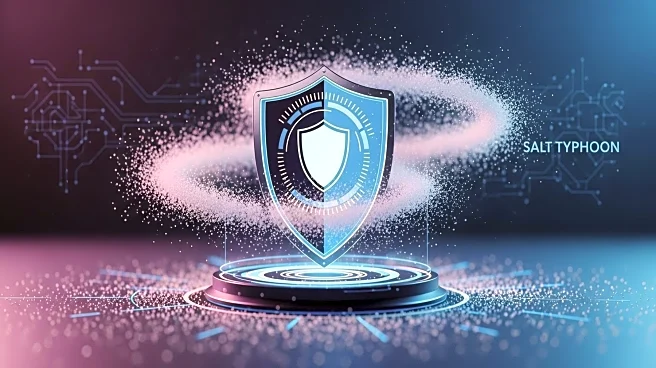What is the story about?
What's Happening?
Rich Baich, Chief Information Security Officer at AT&T, has highlighted the growing trend of hackers adopting unconventional techniques inspired by the Chinese group Salt Typhoon. This group previously infiltrated major telecommunications providers, including AT&T, by exploiting weak spots in endpoint detection and response systems. Baich emphasized the need for companies to rethink their cybersecurity strategies, particularly in areas lacking traditional security controls. The hackers are increasingly using legitimate tools within networks, known as 'living off the land' attacks, to evade detection and carry out malicious activities.
Why It's Important?
The rise of unconventional hacking techniques poses significant challenges for cybersecurity across industries. As hackers exploit weak points in traditional security systems, companies must adapt their strategies to protect sensitive data and infrastructure. The use of legitimate tools within networks complicates detection efforts, requiring more sophisticated cybersecurity measures. This trend underscores the importance of continuous innovation in cybersecurity practices to safeguard against evolving threats. The impact on telecommunications providers, critical infrastructure, and other sectors highlights the need for robust cybersecurity frameworks.
What's Next?
Companies are likely to invest in advanced cybersecurity technologies and strategies to counter the growing threat of unconventional hacking techniques. This may include enhancing endpoint detection systems and implementing comprehensive security measures across all platforms. Collaboration between industry leaders and government agencies could play a crucial role in developing effective cybersecurity solutions. As hackers continue to evolve their methods, ongoing research and development in cybersecurity will be essential to stay ahead of potential threats.
Beyond the Headlines
The shift towards unconventional hacking techniques reflects broader changes in the cybersecurity landscape. As traditional defenses become more sophisticated, hackers are forced to innovate, leading to new challenges for cybersecurity professionals. This evolution highlights the dynamic nature of cyber threats and the need for continuous adaptation in security practices. The emphasis on using legitimate tools within networks raises ethical and legal questions about cybersecurity measures and the balance between privacy and protection.















